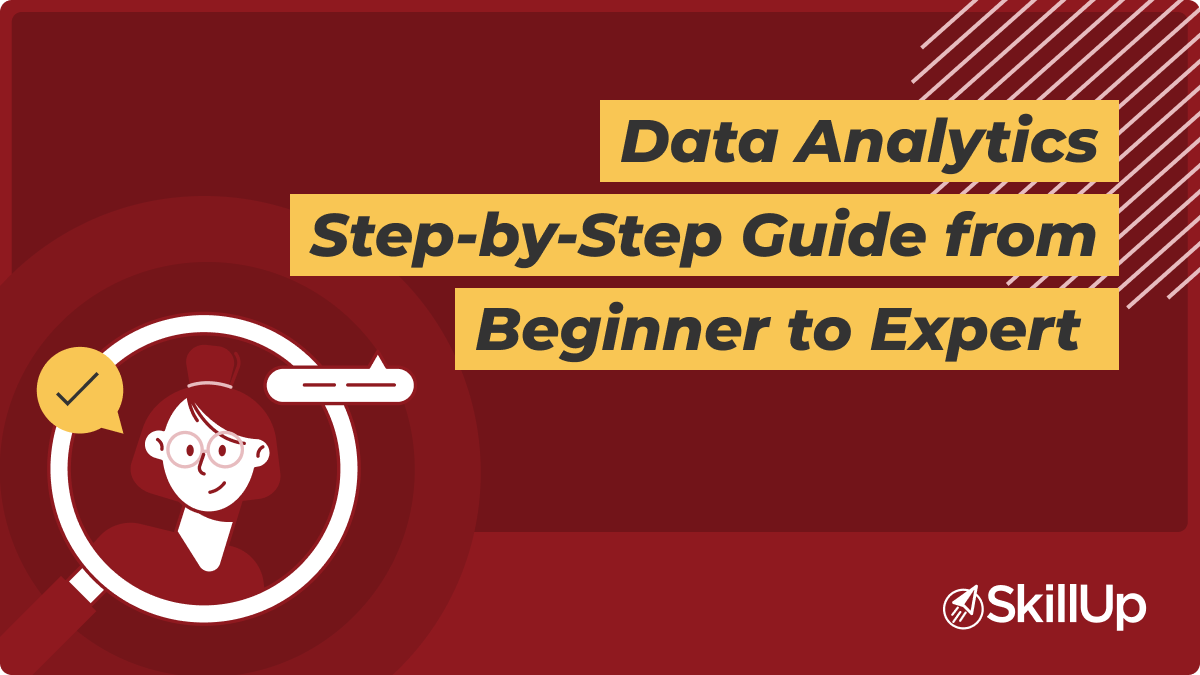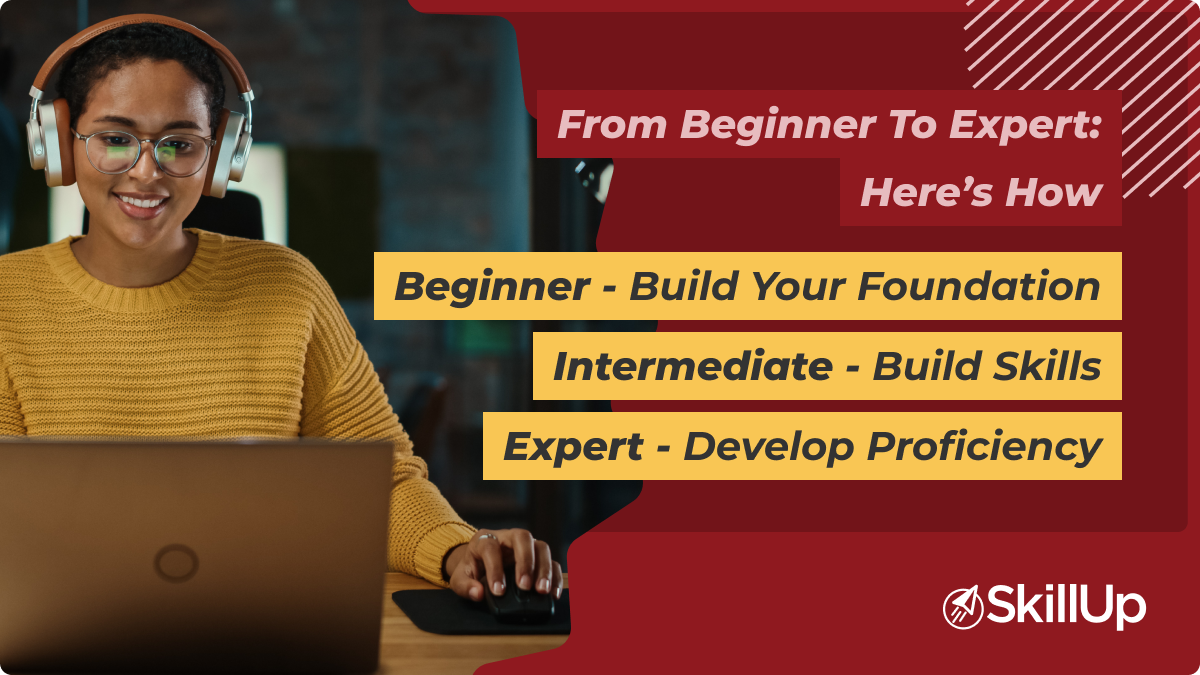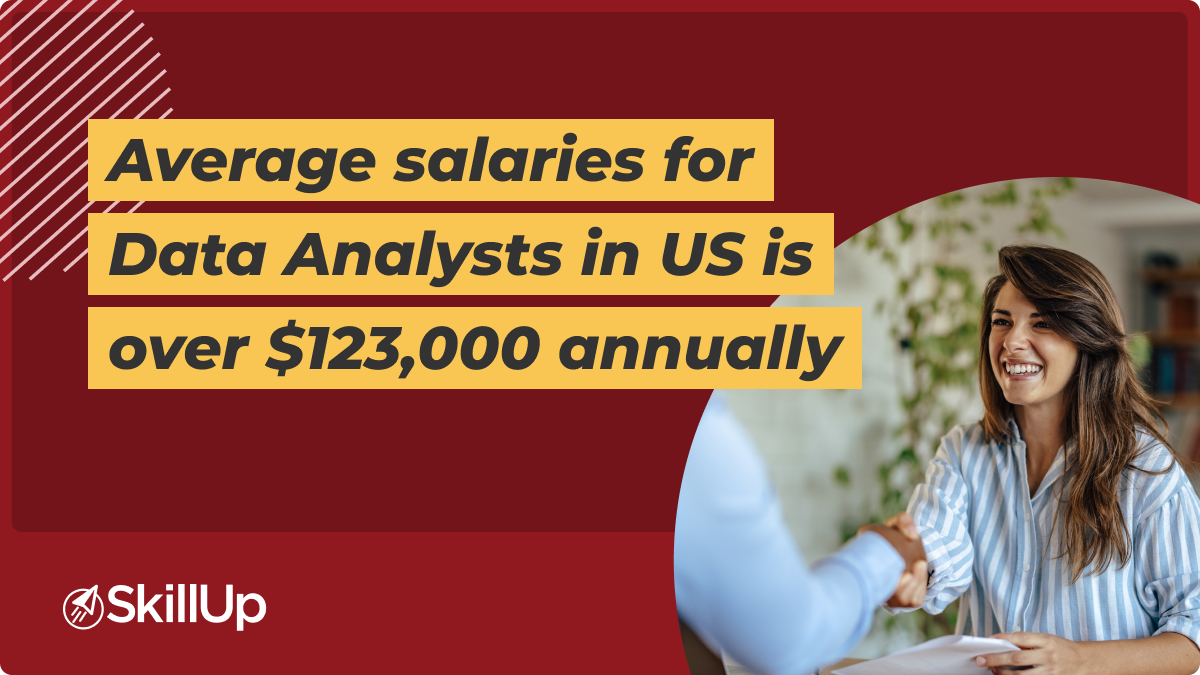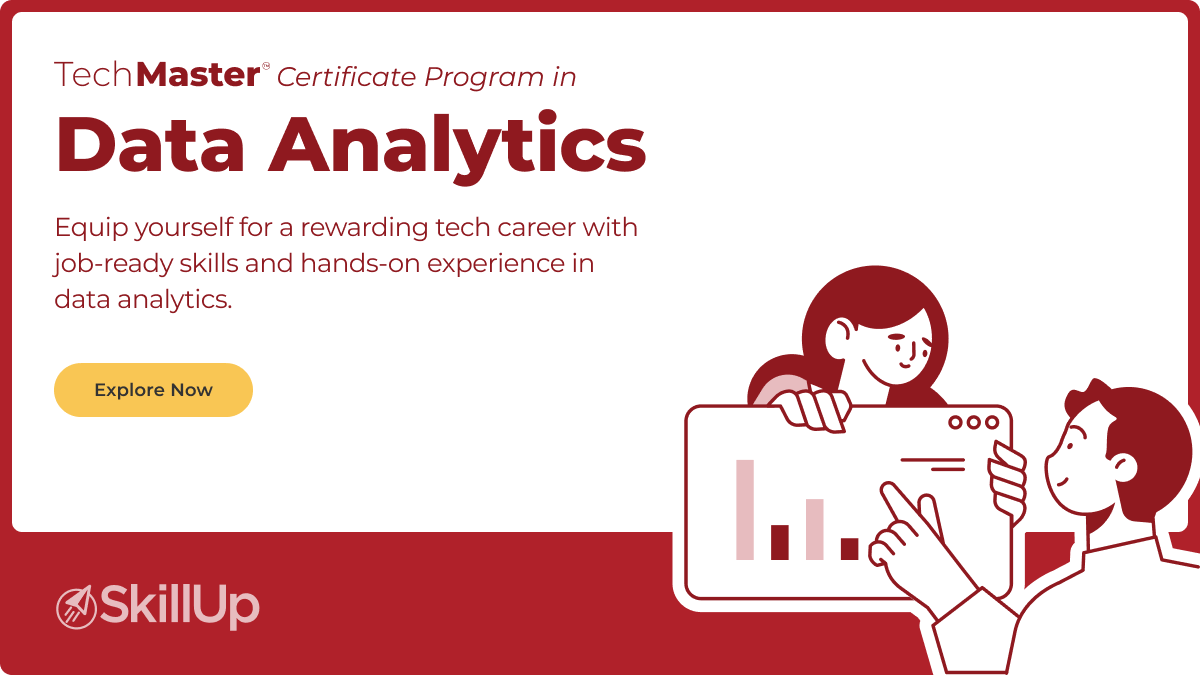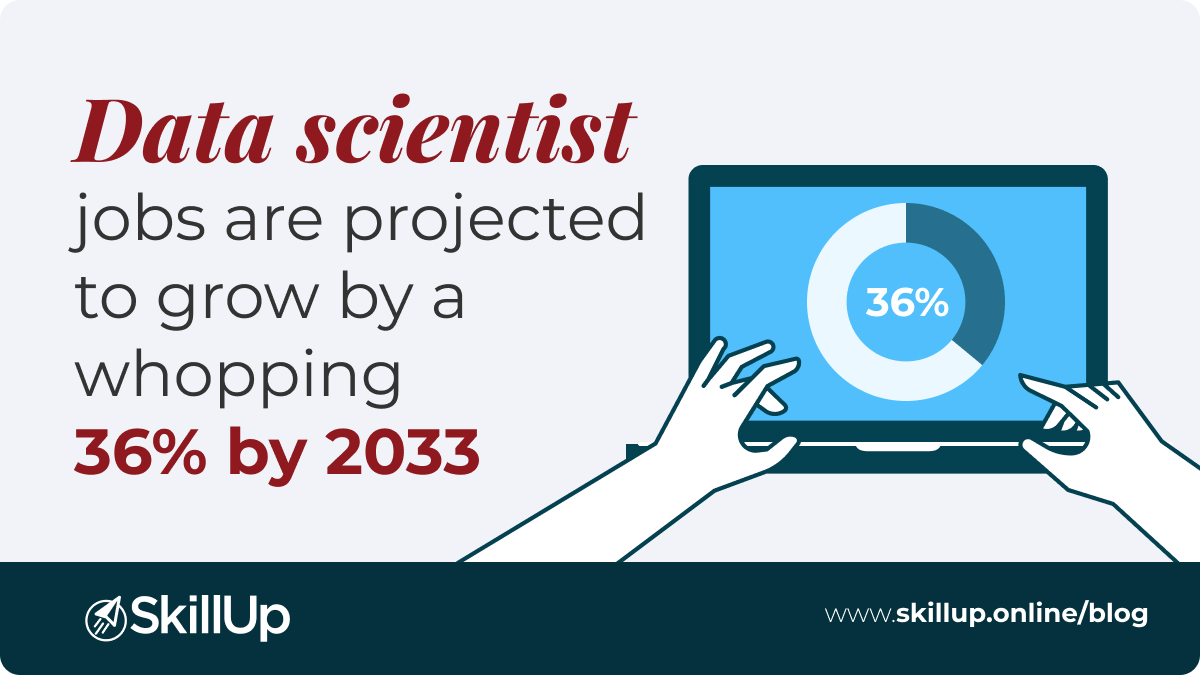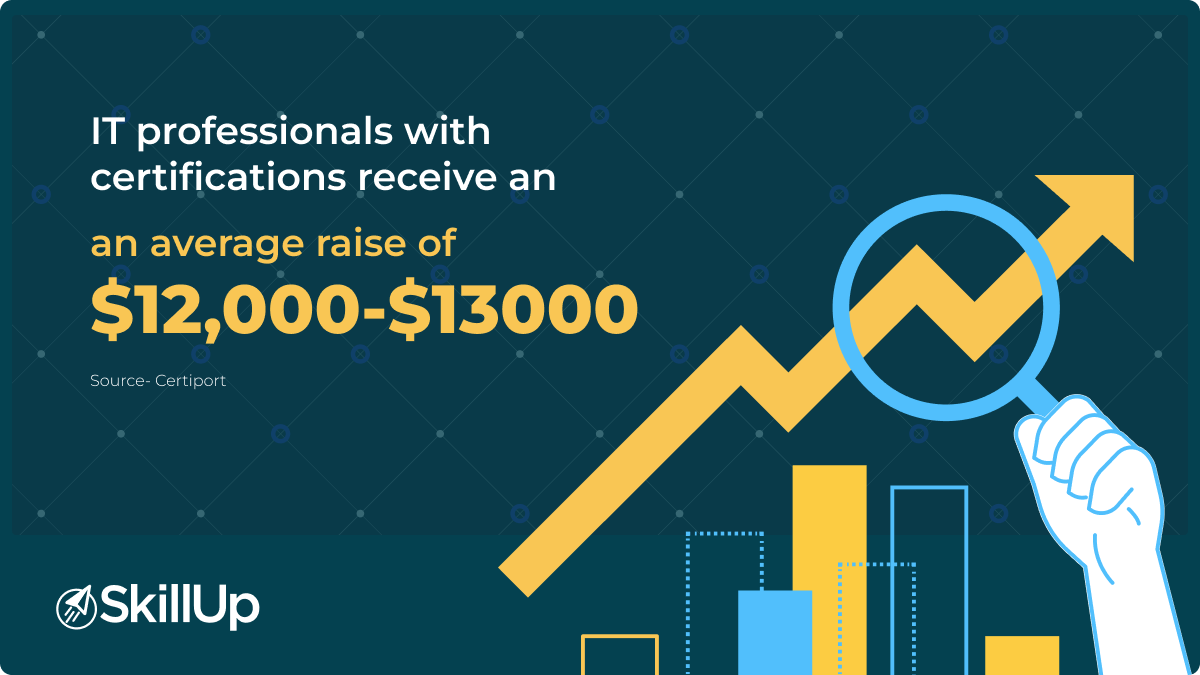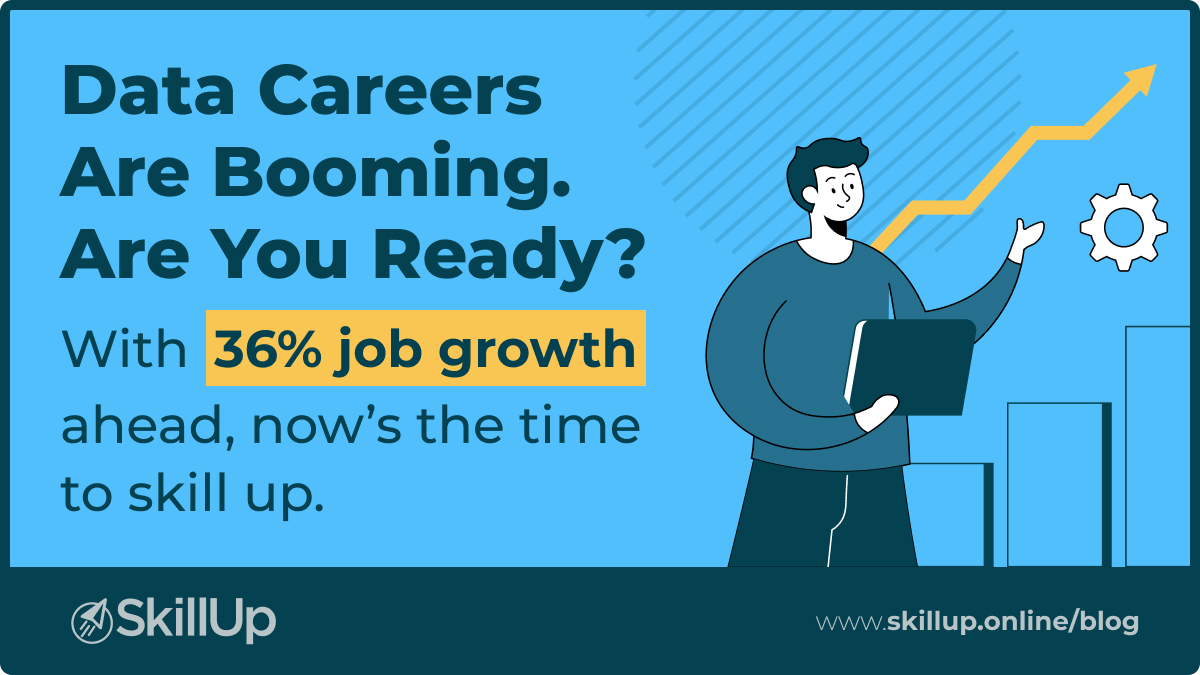In today’s data-driven world, analyzing and interpreting data is crucial. The global data analytics market is projected to reach $654 billion by 2034, growing at 29.4% annually. Data roles like analysts and scientists are expected to grow by 36% from 2023 to 2033.
This blog offers a clear roadmap to develop your data analytics skills, from basics to advanced levels, empowering you to unlock high-paying opportunities and transform your career.
Understanding Your Starting Point
Before embarking on your data analytics journey, it’s essential to identify where you currently stand. Are you a complete beginner exploring data for the first time? Perhaps you have some familiarity with tools like Excel but want to expand your knowledge. Or maybe you’re experienced with certain analytics platforms and ready to tackle advanced techniques.
Here’s how you can determine your starting point:
- Beginners: You’re new to data analytics and want to understand core concepts like data organization, basic statistics, and visualization.
- Intermediate Learners: You’ve worked with data tools or processes and are ready to explore programming languages, SQL, and enhanced visualizations.
- Advanced Professionals: You’re looking to deepen expertise in machine learning, big data, or predictive modeling.
By understanding your level, you can focus on the most relevant skills and courses to achieve your goals.
Building a Strong Foundation: Beginner Courses
For those just starting, building a solid foundation in data analytics is key. At this stage, focus on developing a clear understanding of fundamental concepts, tools, and techniques.
Key Skills to Develop:
- Excel: Learn how to organize, analyze, and visualize data efficiently.
- Statistics: Understand mean, median, mode, standard deviation, and how these metrics inform data decisions.
- Data Visualization: Explore tools like Excel charts to represent data visually.
Recommended Beginner Courses:
- SkillUp Online: Foundations of Data Analytics
- Coursera: Data Analysis with Excel
- LinkedIn Learning: Learning Data Visualization
Building these foundational skills will help you confidently progress to intermediate and advanced topics.
Taking It to The Next Level: Intermediate Learning Pathways
As you advance, it’s time to enhance your analytical abilities with more sophisticated tools and techniques. This stage emphasizes programming and advanced data visualization.
Key Skills to Develop:
- SQL Proficiency: Master querying databases to retrieve, manipulate, and analyze data.
- Python for Data Analysis: Learn libraries like Pandas and NumPy for data manipulation.
- Advanced Data Visualization: Use tools like Tableau or Power BI to create dynamic, interactive visualizations.
Recommended Intermediate Courses:
- SkillUp Online: SQL for Data Science
- SkillUp Online: Python for Data Science
- Other Relevant Course: Tableau Training by Tableau
Project-based learning is vital at this stage, helping you apply your skills to real-world scenarios, such as analyzing sales data or creating dashboards.
Expert-Level Courses
For seasoned professionals, advanced analytics offers the opportunity to specialize and tackle complex problems. This stage involves machine learning, predictive modeling, and big data technologies.
Key Skills to Develop:
- Machine Learning: Understand algorithms like regression, clustering, and neural networks.
- Big Data Tools: Work with platforms like Apache Hadoop and Spark for large-scale data processing.
- Predictive Modeling: Develop models that forecast trends and behaviors.
Recommended Advanced Courses:
- SkillUp Online: Data Science and Machine Learning Capstone Project
- Coursera: Big Data Specialization
- edX: Predictive Analytics Using Python
Learning these advanced topics positions you as a leader in the field, capable of solving high-level challenges and driving impactful decisions.
Practical Tips for Continuous Learning
Data analytics is a rapidly evolving field. To stay relevant, continuous learning and adaptation are essential.
Strategies for Staying Updated:
- Webinars and Conferences: Attend events hosted by platforms like Tableau, AWS, or Google Cloud.
- Join Online Communities:Participate in forums like Kaggle or LinkedIn groups for data professionals.
- Follow Industry Blogs: Stay informed by reading publications like Data Science Central or Towards Data Science.
Free Learning Resources:
- Kaggle: Access datasets and coding exercises to practice skills.
- Google Analytics Academy: Learn about web analytics for free.
- GitHub: Explore open-source projects to deepen your knowledge.
Commit to lifelong learning, and you’ll remain competitive in this high-demand field, ready to tackle new challenges as they arise.
Career Impact of Embracing Data Analytics
Investing in data analytics skills can transform your career. Data professionals are among the most sought-after in today’s job market, with lucrative opportunities and diverse roles across industries.
Key Career Insights:
- High Demand: The U.S. Bureau of Labor Statistics projects a 36% growth in data science and analytics roles from 2021 to 2032.
- Competitive Salaries: Glassdoor reports the average salary for data analysts in the U.S. is $80755, while senior roles like data scientists average over $123,000 annually.
- Diverse Opportunities: Industries such as healthcare, finance, marketing, and technology rely heavily on data analytics.
Steps to Build a Rewarding Career:
- Networking: Attend industry meetups, join professional groups, and connect with mentors.
- Building a Portfolio: Showcase your skills through real-world projects on platforms like GitHub or personal websites.
- Certifications: Advanced credentials from recognized platforms can boost your credibility.
Final Thoughts
By getting data analytics certification, you’re not just learning a skill—you’re positioning yourself for a dynamic and rewarding career.
Data analytics is more than just a skill—it’s a gateway to innovation and opportunity. By following this step-by-step guide, you can confidently navigate the world of data analytics, from mastering foundational tools to tackling advanced techniques. Whether you’re just beginning or seeking to deepen your expertise, this roadmap provides the resources and strategies to help you succeed.
For more guidance on customizing your resume or finding the right course for you, contact our Learner Support Team at [email protected]. They’ll be happy to assist you on your journey!
Our Program:
Programs for Data Analysis
Data Analyst Certificate
Data Analyst Master Program
Data Analytics Certification
Data Analyst Certificate Course
Data Analyst Certificate Online
Data Analytics Professional Certificate
Data Analysis Certification Program
Data Analyst Certification Course
Data Analytics Certificate Program
SkillUp Online
